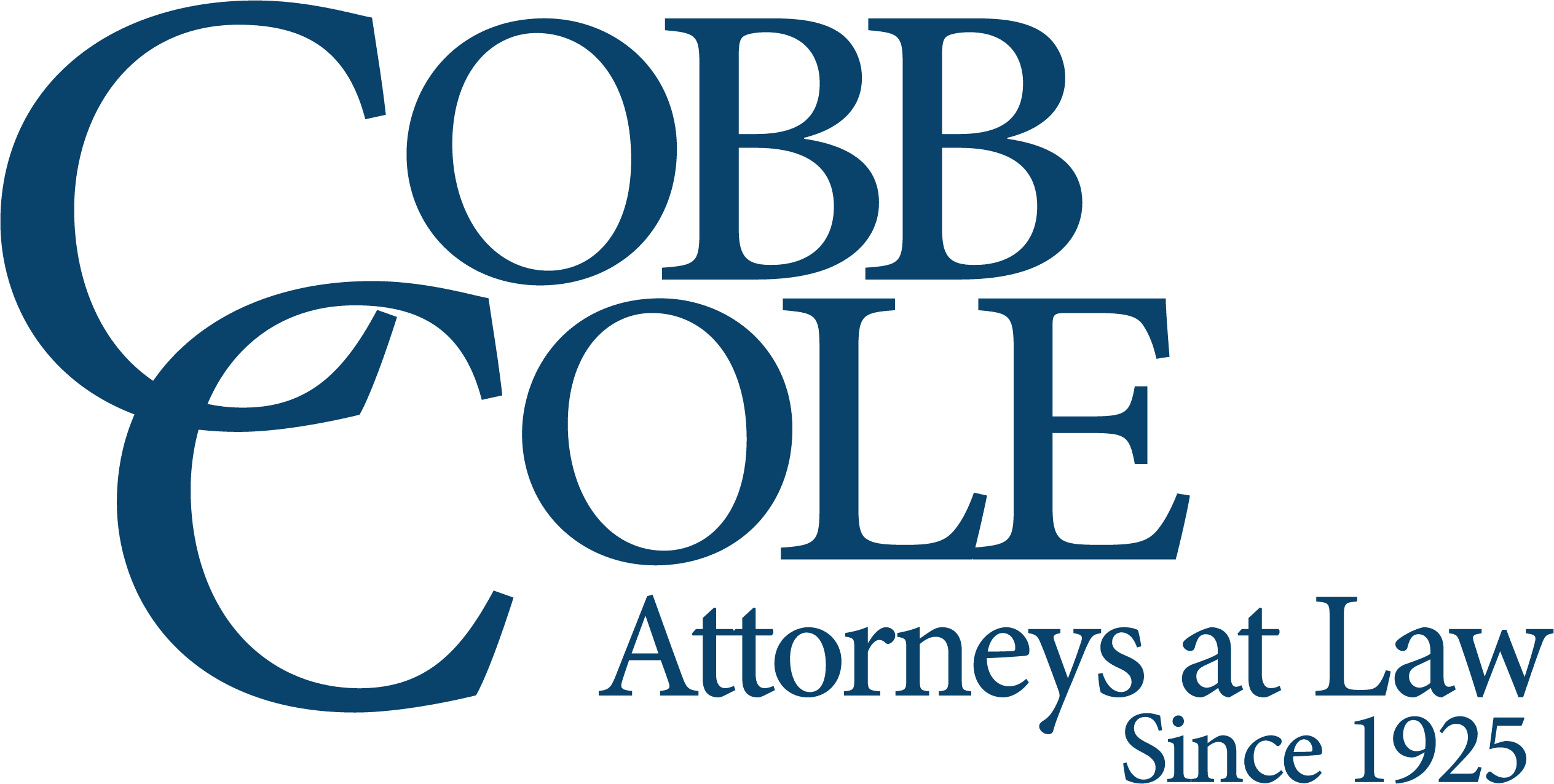Most people love planning vacations, birthday celebrations, and other life milestones. Yet, the vast majority have made no arrangements at all for how their estate will be distributed when they’re gone. In fact, only one in three American adults has an estate plan, despite being aware it’s better to have one in place.
The Estate Planning team of attorneys at Cobb Cole provides strategic services tailored to individual financial situations, wishes, and objectives. We assist clients in safeguarding their assets, ensuring they’re managed and distributed properly in the event of death or incapacitation.
Starting the Estate Planning process can seem overwhelming. Our Firm makes creating a customized estate plan less intimidating, making sure you have a plan that eliminates conflict and confusion during what is often a stressful time.
Why Everyone Should Invest in Estate Planning
Estate Planning is not only for the ultra-wealthy. Anyone who cares about managing their assets, ensuring their loved ones are taken care of, and having a say in their medical and financial affairs in case of incapacity can benefit from it. Proper Estate Planning can help you minimize taxes and avoid probate, giving you the peace of mind that comes with knowing your affairs are in order and your loved ones will be taken care of.
The Importance of Wills and Trusts in Estate Planning
Depending on your assets and wishes, your estate plan could include documents such as a:
- Guardianship instructions
- Will
- Trust
- Durable power of attorney
- Financial power of attorney
- Advanced health care directive
- Medical power of attorney
- HIPAA authorization
- Business succession directive
You might also want to include documentation that includes digital asset information, including passwords for email, social media platforms, banks, and various other online accounts.
Which documents do you need? At a minimum, everyone should have a will, as it sets out how assets should be distributed and who will be the guardians of any minor children. Trusts offer a higher level of control and flexibility, helping you manage your assets during your lifetime and distributing them after your death. They are particularly helpful for people with more complex financial situations, such as owning a business, having assets in multiple states, or wanting to provide for a family member with special needs.
Estate Planning for Business Owners
If you own a business, effective estate planning can minimize disruption during transition periods, ensuring operational knowledge, client relationships, and key business strategies are maintained. It also provides a clear roadmap for whoever takes over the business, outlining a plan that aligns with your long-term goals, including tax implications, asset protection, and setting a fair valuation method in the event of a sale.
Estate planning for business owners is about creating a legacy, whether the company stays in the family or not. Without it, there could be internal conflicts and a potential decline in value. An estate planning attorney can guide you in:
- Developing a succession plan that clearly states who takes over the business in the event of your incapacity or death.
- Drafting legal documents such as wills, trusts, buy-sell agreements, and powers of attorney that define how the business is to be managed and transferred.
- Minimizing tax liabilities associated with transferring business ownership.
- Addressing ownership and control issues to ensure a smooth transition.
- Identifying potential conflicts that could arise from the succession process.
- Obtaining a business valuation for estate tax purposes and buy-sell agreements.
Working with an attorney specializing in Estate Planning for business owners ensures your legacy is preserved and the business continues to thrive far into the future.
Tailored Estate Plans: What Estate Planning Attorneys Do
While numerous online services offer will preparation templates, most people can benefit from having an Estate Planning attorney create a personalized plan that addresses their unique circumstances. Customized estate plans consider a variety of factors, including:
- Assets and liabilities. This can include real estate investments, businesses, retirement accounts, insurance policies, personal property, and debts.
- Beneficiaries. Dependents and potential heirs from current and previous relationships or marriages can complicate deciding how to distribute assets. Aside from who gets what, it often involves when and how they receive assets, which can be critical in complex family situations or where minor children or those with special needs are involved.
- Tax implications. Your heirs could face potential estate, inheritance, and income tax consequences depending on which strategy you choose.
- Charitable wishes. Some people want to establish a charitable trust or make bequests to specific charities.
By creating an estate plan tailored to your specific needs, you can be sure your assets go where you want them to go. You also eliminate future stress and anxiety for your loved ones.
Start Planning Your Future Today
Life situations change from year to year, as do Estate Planning laws and tax rules. Once your estate plan’s in place, you’ll want to review it every few years to ensure it still offers you and your beneficiaries the best protection.
Cobb Cole’s Estate Planning attorneys are committed to helping you safeguard your assets and secure your legacy. We take the time to understand your present circumstances and your vision for the future, creating a peace-of-mind solution that reflects your current needs, adapts to life’s changes, and preserves your wealth and intentions across generations.
Contact us online or call 386-255-8171 to learn more.

